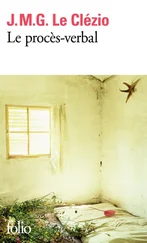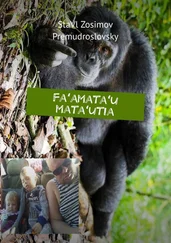Chancelade decided that the best thing to do so as not to be disturbed was to go as close as possible to the water. He slouched across the beach, going round several bodies lying on the pebbles, and went and sat down no more than a few inches from the water’s edge, where there was a little bit of sand between the stones. He sat there for a few minutes watching what went on around him. The sea lay stretched out like a slab of concrete, grey, heavy, thick, with only, from time to time, a sort of swell that seemed to stay in the same place. The occasional gusts of wind bore a sharp and disagreeable odour. The sky was blue. The sun shone fiercely almost in the centre of the atmosphere. When Chancelade felt himself beginning to perspire he threw the green towel down on the beach and undressed. Then he stretched himself out on the ground, the red and black check of his bathing-trunks contrasting oddly with his over-white skin.
Chancelade let the sun’s warmth lap round and enfold him. He waited second after second to feel each separate square inch of his skin being burned. It was strange: it was like having a mobile eye that shifted hither and thither over the thin surface of skin, roving about, at the whim of chance or of the will, to make contact with the world. Eyes shut, deaf to the sounds that rose from the beach and the sea, the boy lived entirely in his skin as revealed by the sun. He no longer had any hands or legs or stomach or face, or red and black check bathing-trunks. He was an old wrinkled tree-trunk, a leafless twig, a spongy mass, or one covered with identical scales on all of which the hot air weighed down with equal pressure. A stranded jelly-fish, a puddle of dirty water, a bit of earth enclosed in the earth. The tingling caused by the sun came and went with slow shudders just like the movements of the clouds in the sky and the jetsam on the sea. It was curious, that: he was at once here, lying with his back pressed firmly against the ground and his chest and stomach facing up into the vault of the sky — exposed, rooted; and at the same time there, elsewhere, floating somewhere above the horizon, completely detached from the world. Without thinking, without moving, he could separate himself from his own effigy and almost look down on himself from some dream height. Right in the depths of the void, very far away but very clear, he could see this kind of clearing lit by the yellow circle of the sun, and in the centre of the clearing was his white body in red and black check bathing-trunks, lying motionless on its back with its arms flung out. And he could see this place that he inhabited rushing away at a dizzy speed, as if he was being whirled along on a rocket travelling millions of miles per second. And yet the more the flat stretch of beach withdrew from him the more visible its details became beneath the pitiless lens. And suddenly Chancelade understood. He understood that he was there, on that narrow beach, alone in the midst of so many men, women and children, a living corpse.
He was so surprised by this discovery that he felt a stab of anguish shoot through his mind. His forehead and back covered in sweat, a pain in his stomach, he sat up and looked eagerly before him. The sea was still there, smooth and oily, and behind him the beach still echoed with the same shouts and noises. A pale sky still covered the void, and the sun shone on in the same place. A little motor-boat chugged painfully across the bay, its gasps and splutters fitfully audible on the shore. Chancelade wiped his hands and face with a corner of the towel. Then he got up and went in the water.
He swam for a long time, every so often ducking his head under. The bay ended in a sort of steep headland, and Chancelade decided to swim out to it. He lowered his feet on to a flat rock, slippery with weed, that lay at the neck of the headland. He climbed out of the water cautiously because of the sea-urchins. The last time he’d gone bathing on the rocks, with Roussel, the other boy had got a sea-urchin’s spine in his right foot and had to be taken to the doctor for it to be cut out with a scalpel.
Chancelade jumped from rock to rock till he reached a path running along the headland, and followed it away from the beach. Above him were private houses and gardens with lots of trees and plants; but there were no people to be seen. The heat was overpowering here because of the sun continuously reflected from the sea. Big canna and aloe leaves hung down everywhere over the path and had to be pushed aside. There was that smell again too — the smell of cinnamon, beer, urine and iodine that lay heavy on the lungs and made you pant. From the cracks of crumbling walls big grey lizards stared at you fearlessly out of motionless eyes. Wasps buzzed about, and thin flies alighted on your legs to drink the sweat and sea-water.
For a moment Chancelade thought it would be best to go back and lie down on the beach. But he’d never been here before and wanted to find out what it was like.
Suddenly, before you knew how it happened, the path emerged from the stifling undergrowth into an open creek. There was a slight breeze blowing, and Chancelade thought he might cool off for a bit before going on.
The creek was absolutely deserted, and only half lit by the sun because of the tall trees that surrounded it. Between two grey rocks there lay a sort of beach of white pebbles. But this was no ordinary beach. It was strewn with mountains of rubbish. There were tons of old iron, bits of wood and petrol-cans, as if for months and months trucks had been coming to shoot a whole town’s refuse there. But there was no other approach except the little path Chancelade had taken, so all the débris must just have been gradually washed ashore in storms.
Chancelade looked at the strange confusion for a moment, then climbed down on to the beach. He went and sat down on a huge trunk, all white with salt, that sprawled across the pebbles. When he felt restored by the breeze he started to walk up and down the beach examining the bits of rubbish one by one. He threw stones at petrol-cans black with rust. He broke dead branches on the rocks, smashing down with all his strength as though he was hitting an animal, or a man. He threw empty bottles as far as he could, listening each time for the pleasant sound of splintering glass. He tried to pull up a long rusty bar buried deep in the pebbles. He stove in rotten packing-cases on which the printed words were half weathered away. He picked up big rocks and dropped them on sheets of metal. He smashed stones and sniffed the smell of sulphur left by the flying fragments. He flung into the sea cork floats, life-belts, flasks, bits of old tyres. He piled empty tins on top of one another then knocked them all down again with stones. Everything he could find to throw he threw in all directions: rotten old shoes, bolts, saucepans, tins, mouldy planks, branches eaten away by sea-water, stones, broken chairs, castings, plastic containers, bits of brooms, bones, petrol-cans filled with gravel. He worked at it diligently, without respite, jumping over rocks, crunching over pebbles, striding across pools of oil and mounds of broken bottles. He was the adventurer fighting whole armies single-handed, one man alone against ten, a hundred, ten thousand. He rained down bombs. He sank ships with cannon-fire. He laid about him with his sabre. He had eyes everywhere and nothing could take him by surprise. From time to time he would utter some guttural order in an unknown language, harsh and barbaric:
‘Brox wanyahou wandorh!’
‘Pradjo!’
‘Afadanstar dboï!’
‘Hiarrh-to hiarrh-to!’
He brought the war to an end by smashing in with an iron bar a broken metal barrel that gave off a trickle of oil This was the moment when in the ordinary course of events he ought to have set light to all the dead wood and climbed on a rock to watch it burn. But Chancelade hadn’t any matches and felt too tired to try to start a fire by rubbing two sticks together. So he sat down on the stones and looked at the sea and did nothing.
Читать дальше












